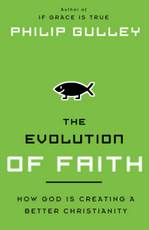Why do we care if we know rather than merely believe? Both in religion and life in general? I think that typically we appeal to an ethics. There are several ways this occurs.
The first is that we have a community notion that knowledge entails beliefs that are true and have a certain degree of justification. If I go into an employer and say I know how to program in C++ and Python and I’ve never programmed in my life then we recognize that is a lie and that it is wrong to tell that sort of lie. In a sense we recognize that in most cases to say we know when we don’t know is deceptive. This doesn’t mean it’s necessarily wrong to believe something we don’t have good reasons for or even to believe when we have reasons not to believe. It just means that when we claim knowledge we’re making a specific claim and we have a duty to make sure we’re being truthful about what we say. Given that it’s fair to ask when we actually do know something.
Most people think we have more of a duty beyond just being honest about how we use words though. It is better to know what is real than to merely believe based upon poor reasons. That is there is an intellectual duty to become informed. The reasons for this duty might vary. It may be based upon pragmatic reasoning –- an informed educated populace leads to a better society. (Certainly few of us would want to live in the ignorance of past cultures) It might be due to a duty we have towards others – either as a duty as citizens or a basic ethical duty towards our interactions with others which demands we become informed about them and our interactions with them. We could numerate numerous reasons. Ultimately though very few people think we are better ignorant than knowledgeable.
I think that the primary reason justification is so important is that beliefs have consequences. It is from belief that we act. Some might even say that if we really want to know what someone believes we should try and understand how they would act. That is that how we would act under circumstances is but the other side of belief. If out actions have ethical implications we must worry about then it follows that we should worry about what our beliefs are. We should want to have correct beliefs so as to better have correct behavior.
From a religious perspective this is doubly true. We’re told that
The heart of the prudent getteth knowledge;
and the ear of the wise seeketh knowledge
(Proverbs 18:15)
Probably the clearest pronouncement is
And truth is knowledge of things as they are, and as they were, and as they are to come; and whatsoever is more or less than this is the spirit of that wicked one who was a liar from the beginning. The Spirit of truth is of God. I am the Spirit of truth, and John bore record of me, saying: He received a fulness of truth, yea, even of all truth; And no man receiveth a fulness unless he keepeth his commandments. He that keepeth his commandments receiveth truth and light, until he is glorified in truth and knoweth all things. (D&C 93:24-8)
While we can dispute when we do or don’t have knowledge and the importance of a certain intellectual humility, it does seem that Mormons have a religious drive to know. Further within a religious context it seems clear that we are to seek knowledge of these important truths.
It must be said that not all know. If Mormons are guilty of anything it is probably putting such a thrust on learning and knowledge that there is extreme pressure to claim one knows whether or not one actually does.
I take one of the messages of D&C 46:13-14 that some can know while others may believe these people who know without knowing themselves.
For all have not every gift given unto them; for there are many gifts, and to every man is given a gift by the Spirit of God. To some is given one, and to some is given another, that all may be profited thereby.To some it is given by the Holy Ghost to know that Jesus Christ is the Son of God, and that he was crucified for the sins of the world. To others it is given to believe on their words, that they also might have eternal life if they continue faithful.
To me there are a two things we should acknowledge:
- It is better to believe truth rather than error
- Paying attention to what justifies our beliefs is a good way to come to correct beliefs.
The question is what justifies our beliefs. The very term suggests yet an other connection with ethics. Just as we can talk about when a person is justified in a particular action ultimately when we talk about when a person is justified in belief we are talking about what they should have done. There is an intellectual duty we have as we think about our beliefs.
Unfortunately there is very little agreement upon what that duty is beyond that we have one.











